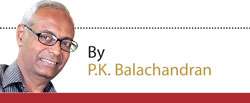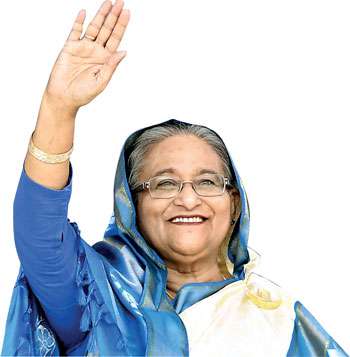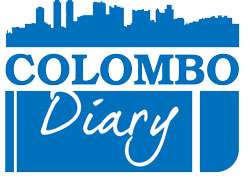20 Nov 2018 - {{hitsCtrl.values.hits}}
 Elections to Bangladesh’s eleventh parliament are to take place on December 30 and they are going to be very different from the elections to the tenth parliament which took place in January 2014.
Elections to Bangladesh’s eleventh parliament are to take place on December 30 and they are going to be very different from the elections to the tenth parliament which took place in January 2014.
In 2014, the elections were boycotted by the main opposition party, the Bangladesh Nationalist Party (BNP), led by Khaleda Zia.
The BNP had contended that the elections will not be free and fair in the absence of a neutral caretaker government, a system the Awami League (AL) government led by Sheikh Hasina had abolished in 2011.
The BNP’s anger was justified in as much as the caretaker government system was introduced after a struggle jointly waged by it and the AL in 1991.

As a result of BNP’s boycott, more than half the 350 seats in parliament (153), were won by the AL uncontested. The AL won 87 of the uncontested seats (59%), and 105 of the 147 contested seats (almost 69%).
The only party in the opposition was former military dictator Gen.H.M. Ershad’s Jatiya Party (JP) which got 41 seats (eventually).
In 2015, the frustrated BNP unleashed violence which led to the killing of 197 people, 72 of whom were burnt alive. To the advantage of the AL, the violence alienated the BNP from the people.
The virtual one-party rule of Prime Minister Hasina was further bolstered by the institution of corruption and money laundering cases against BNP chief Khalida Zia and her son Tarique Zia.
While Khalida was jailed, Tarique became a fugitive in London. The BNP became leaderless and began to wither.
However, Hasina’s one-party rule bolstered the country’s economy. In 2017 the economy grew at 10% with lots of foreign investments. Per capita income rose to US$ 973. Manufacturing boomed and became the single largest contributor to the GDP (Bangladesh Taka 18 billion). With exports going up, the trade deficit came down to US$6.2 billion. Remittances were at a high US$ 15 billion.
But the boom did not produce as many jobs as it should have. 31% of the people live below the poverty line.According to independent agencies, 47% of graduates are unemployed though the Bangladesh Bank said that 98% of those in the working age group are unemployed. There is under-employment rather than employment.
It was to check the Hasina government’s unbridled power that the BNP decided to give up its policy of boycotting elections until they are held under neutral caretaker governments
 But the political stability which contributed to economic growth came at a cost. Perhaps deservedly, Islamic terrorism and the drug menace were tackled ruthlessly by extra-judicial killings. Extra-judicial killings numbered 128 in 2014, but rose to 195 in 2016 partly because of the killing of foreigners and upper class guests in a posh restaurant in Dhaka by boys from elite English speaking families.
But the political stability which contributed to economic growth came at a cost. Perhaps deservedly, Islamic terrorism and the drug menace were tackled ruthlessly by extra-judicial killings. Extra-judicial killings numbered 128 in 2014, but rose to 195 in 2016 partly because of the killing of foreigners and upper class guests in a posh restaurant in Dhaka by boys from elite English speaking families.
Recently, under the Special Powers Act of 1974, 14,000 people were rounded up and 300 persons were killed in crossfires.
Human Rights groups cried foul, but the government and the people welcomed the use of extra judicial measures as Islamic terrorism and drug trafficking had spread like cancer, claiming lives of liberals.
But unbridled power also led to the Hasina regime dominating and manipulating the administration, the judiciary and the Election Commission. It abolished the election-time caretaker government system in 2011.The Election Commission came under the Executive and the ruling party de facto.
Recently,the Chief Election Commissioner K.M. Nurul Huda said that he cannot guarantee an election without irregularities. And one of the Election Commissioners, Kabita Khanam, said that the commission cannot ensure a 100% fair election but can ensure an “acceptable election”.
Jatika Oikya Front - BNP Alliance
It was to check the Hasina government’s unbridled power that the BNP decided to give up its policy of boycotting elections until they are held under neutral caretaker governments. As a first step the BNP contested the local bodies elections in 2016 and it is now contesting the December 30 parliamentary elections.
The BNP has joined hands with Kamal Hossain’s new group, the Jatika Oikya Front (JOF). Hossain, who was Bangladesh’s first Foreign Minister, may not be politically very relevant, but he gives the BNP legitimacy. Its image is tarnished by charges of thuggery and violence. The liberals brand it as a fellow traveler of Islamic radicals.
In 2014, the elections were boycotted by the main opposition party, the Bangladesh Nationalist Party (BNP), led by Khaleda Zia
JOF has demanded free and fair elections; appointment of a neutral government ahead of elections; the release of BNP chief, Khaleda Zia; withdrawal of all cases against her and other BNP leaders and activists; reform of the Election Commission by appointing people acceptable to all parties; usage of electronic voting machines; assurance of freedom of speech for individuals, newspapers and electronic and social media, and all political parties’ meetings and rallies; and a halt to legal proceedings in all political cases after the announcement of the election schedule.
Press freedom had come under attack under the Hasina regime. For example, 79 cases, including some sedition cases, were slapped on the editor of The Daily Star for example. Chief Justice Surendra Kumar Sinha had to flee the country after he gave a ruling against the 16th Constitutional amendment which had allowed the impeachment of Supreme Court judges.
Sinha had also said that the Supreme Court could unseat a Prime Minister as the Pakistan Supreme Court did in the case of Prime Minister Nawaz Sharif.
Hounding Continues
The Hasina government is continuing to go after the BNP even though it is a much weaker party now with its leader in jail and her heir apparent living in London as a fugitive.
After the announcement of the December 30 elections, 773 BNP cadres were arrested. The BNP has submitted a list of the arrested to the Election Commission.
It is difficult to predict which way the December 30 election will go. A recent survey by the International Republican Institute (IRI) found there is still “significant support” for Prime Minister Sheikh Hasina and the Awami League. But the support base is narrowing.
62% said the country is going in the right direction, but one year ago, it was 75%. There is also an increase in the number of people not wanting to answer the questionnaire. 40% of respondents declined to say whether they thought political stability would improve or worsen, compared to 29 per cent last year.
30 Nov 2024 2 hours ago
30 Nov 2024 4 hours ago
30 Nov 2024 4 hours ago
30 Nov 2024 6 hours ago
30 Nov 2024 9 hours ago